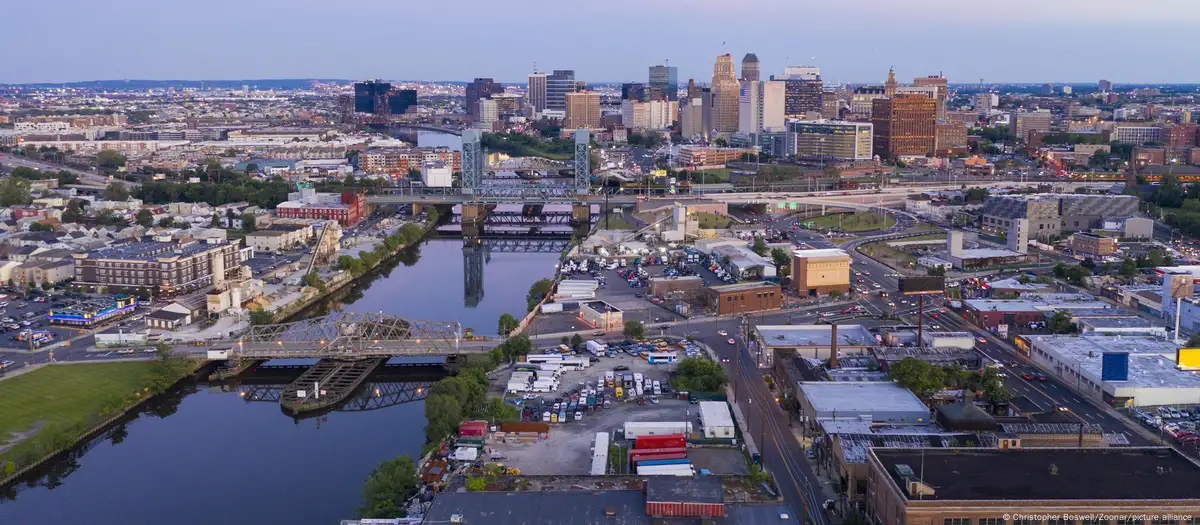
With the threat of mass deportations and increasingly wide performance from Ice, the number of Brazilians who stop working, avoid leaving home and drastically changing their habits in the United States.
Donald Trump’s return to the US presidency rekindled the fear among irregular Brazilian immigrants. Amid operations of the Customs Immigration and Control Service (ICE), trades are emptied, there was a drop in consumption and the increase in labor shortages in essential sectors, such as cleaning, construction and deliveries.
Since the beginning of his second term, Trump has implemented a series of rigorous changes in migratory politics, focusing on the deportation of undocumented immigrants. According to the US Department of Internal Security, until November 2024, at least 38,677 Brazilians were waiting for deportation – about 2.7% of the 1.45 million foreigners with final exit orders from the country.
The Brazilian community in the United States is one of the largest in Latin America outside the country of origin. It is estimated to live more than 1.8 million Brazilians in US territory, focused especially on states such as Florida, Massachusetts, New Jersey and California. Many are low -income workers, inserted in the cleaning, construction, home care and food sectors.
With the advancement of migratory measures, support organizations reported an increase in demand for legal guidelines, temporary shelters and psychological aid. According to the NGO Mantena, in Newark (NJ), also grew the number of people seeking to renew Brazilian documents and preparing children for a possible return.
“There are days when we don’t know what to do either,” says Rodrigo Godoi, director of Mantena, saying that the climate of uncertainty affects even the organization’s team. “We tried to keep calm and transmit security to others, but we also not know where to go.”
Godoi also highlights the impact on cases of domestic violence. “The victims are afraid to denounce. We spent years trying to break the taboo so that women could talk about it. Now, they report and are deported shortly thereafter, the silence cycle comes back.”
Tense moment
Lawyer Flávia Santos Lloyd, with more than two decades of acting in the migratory area, says that the current moment is the tense of her career. “I have customers with American citizenship for fear of travel. People entitled to naturalization that they are giving up. I’ve never seen anything like that.”
Lloyd also reports that fear has affected adherence to educational events on basic rights. “I organized a lecture on immigrant rights, but I had to keep it in a secret place, with a group closed on WhatsApp. No one wanted to be seen together.”
Panic reaches even legal processes. “There are cases where the person goes to the deportation hearing or check-in and is arrested on the way out. This has created a climate of terror. Even those who want to do everything right, now are afraid.”
In law firms, the impact is also emotional. “We created a 24 -hour duty per WhatsApp. If the client sends ‘911’, we understand that he has immigration. I never imagined organizing it,” says the lawyer.
In the heart of the Brazilian neighborhood
Ironbound in Newark (New Jersey) is an epicenter of this change. With a strong presence of Brazilian and Latin immigrants, the neighborhood is experiencing a visible retraction in trade, circulation and mood of the streets.
For 21 years living in the United States, the miner João de Souza commands a bakery in Ironbound | Luciana Rosa/DW
For 21 years living in the United States, the miner João de Souza commands a bakery in Ironbound. In a short time, he saw the flow of clients plummeting. “The movement fell more than half. It fell a lot. I don’t know if it’s fear, if it’s something else,” he says, without hiding uncertainty.
Souza had spent five years at another address, but changed the point in September and reopened the new space in November last year. Even with the bakery active in delivery applications, the physical clientele did not return as expected. “There are people who pay Uber just to get bread here, even living at 15, 20 minutes.”
The crisis in trade is also reflected in religious spaces. “I go to church every Sunday. But now, especially in summer, there are fewer people going. The frequency has fallen,” says Souza. Despite worry, he does not think of returning to Brazil for now. “My son is already 18 and will enter college. We want to wait to see what God is preparing.”
“It was supposed to change for the better, but it changed for the worse”
Living in the United States 13 years ago, hairdresser Douglas Barbosa, also miner, accompanied four governments while maintaining his salon in Ironbound. “I’ve seen everything: Obama, Trump, Biden, and now Trump again. We feel in the daily life of commerce as politics changes everything. And it’s not our impression – the difference is in all areas,” he says.
Barbosa decided to expand the business last year, exchanging a small hall for a space almost three times larger, with more structure and parking. But instead of growth, it faced a fall. “I had a team of 13 people, including hairdressers and manicures. Now I’m seven. I thought it was going to get better, but got worse.”
 Douglas Barbosa has lived in the United States for 13 years | Luciana Rosa/DW
Douglas Barbosa has lived in the United States for 13 years | Luciana Rosa/DW
According to him, part of the team stopped working for fear of the exhibition. “Even with good condition, many people preferred to serve hidden, at home or in rooms. It’s not for money, it’s fear. People are afraid to get visible.”
Barbosa also lost professionals because of migratory actions. “One of the best employees I had, a Spanish, left for North Carolina after a migratory operation here. Another, Brazilian, decided to go back to Brazil. She had come with a visa, asked for extension, but gave up. The son wanted to stay, she didn’t.”
For him, there is a new mindset among those who arrived recently. “There are people who already say that it is better to come back than to live in fear. Who has been here for a long time already knows what will face. But for those who arrived now, the mood is terror.
Sales Fall
For 21 years in the United States, Fluminense Leonardo de Oliveira, from Teresópolis, commands a beverage distributor in Ironbound. With experience in local commerce, he says the last months have been marked by two factors: fall in purchasing power and widespread fear.
“People say they are unable to work as before. Many have had reduced times, others have stopped completely. And fear is everywhere, especially among the Hispanic audience. Fear of being on the street, being approached by Ice, of happening a blitz.”
 Leonardo de Oliveira has lived in 21 years in the United States | Luciana Rosa/DW
Leonardo de Oliveira has lived in 21 years in the United States | Luciana Rosa/DW
According to Oliveira, the movement of customers even increased in volume, but what fell was the ability to consume. “Before, the person carried two boxes of wine. Now, it takes four bottles. No one else buys in quantity. Sales dropped about 20% to 25% compared to three months ago.”
He says a lot of false information also feed insecurity. “Rumors circulate all the time. So -and -so says Ice is holding people, but sometimes it was just a warrant to a specific person. This is feeding the panic.”
“My daughter got into the car crying for fear of Ice”
The day laborer Patricia, who asked not to have her real name disclosed for security reasons, has lived in the United States since 2018 and has the Green Card process in progress. Even without direct impacts on the work routine itself, she reports the effects of migratory repression on the daily life of the community.
“With my clients, I even felt solidarity. But what I saw in the aesthetic halls and clinics was very different. A lot of people canceled care, stayed at home for fear of leaving.”
 According to Patricia, movement on the streets dropped dramatically in the first months of new management | Luciana Rosa/DW
According to Patricia, movement on the streets dropped dramatically in the first months of new management | Luciana Rosa/DW
According to her, the movement on the streets fell dramatically in the first months of the new management. Patricia says that the main avenue of the neighborhood, once very busy, is empty. “There is a store closing. And the number of apartments available to rent has increased a lot – which, until recently, was unimaginable here.”
The tension increased by the visibility of ICE’s presence in the neighborhood. “A lot of people didn’t even know they have a detention center here in Newark, and also an Ice office. A neighbor of mine saw a man be arrested around the corner, going to work with lunchbox in his hand.”
Fear came to your daughter. “One day she got into the car almost crying and said, ‘Mom, I don’t want the Ice to secure us.’ This came from conversations with colleagues at school. She studies here in Ironbound, where there are many children of Brazilians.”
The thought of returning to Brazil is recurring. “My daughter talks about it every day. I also think. Brazil has its problems, but what weighs here is this climate. Politics there scares, but at least we live without this constant fear.”
Fear and vote
Despite the scenario of fear, Trump support between part of the community remains. Many blame the Biden government for the disordered entry of immigrants and associate the crisis with this alleged opening. Rodrigo Godoi, from Mantena, disagrees. “A lot of people who support Trump are not even American. They are children and grandchildren of immigrants who have lost the notion of the story. At the same time, I see many solidarity Americans trying to help.”
A graphic industry summarizes the dilemma: “My brother has voted for Trump, but now he says employees are afraid to leave home. This is breaking his business. It’s a domino effect.”
While the political debate intensifies, communities such as Ironbound’s continue to try to live under the weight of insecurity. “This psychological terrorism has an hour has to pass,” says Douglas Barbosa, “we just don’t know when.”
Originally published by DW on 23/07/2025
By Luciana Rosa
Source: https://www.ocafezinho.com/2025/07/24/repressao-anti-imigracao-muda-rotina-de-brasileiros-nos-eua/

